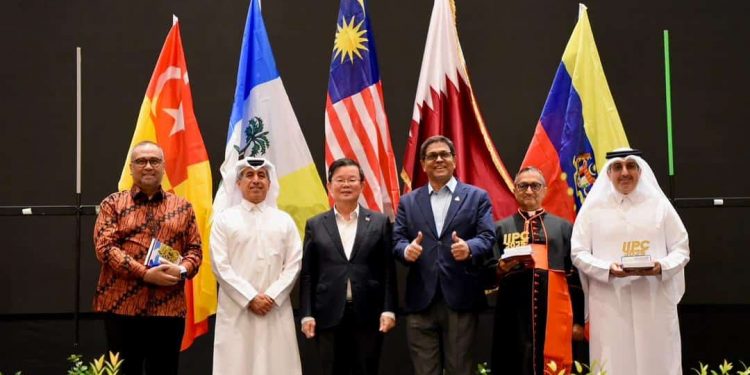PENANG is well-positioned to serve as a platform for interfaith dialogue and peacebuilding, says Chief Minister Chow Kon Yeow.
He believes the strong presence of civil society and non-governmental organisations (NGOs) in Penang has made it an attractive destination for global gatherings.
“The state government is very open to such ideas and will provide support for these initiatives,” he said when asked by a reporter about a proposal raised at the recently concluded World Chinatown Conference for Penang to host international peace dialogues.
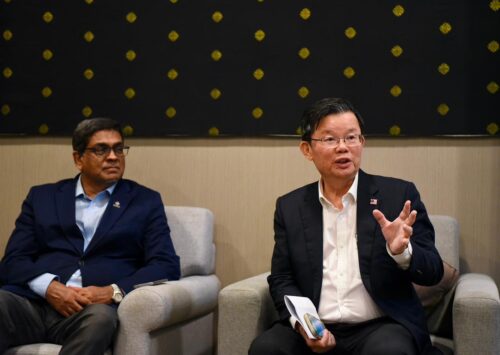
Chow was speaking to the media after opening the International Interfaith Peace Conference (IIPC) 2025 here today.
Held for the first time outside the Klang Valley, the IIPC 2025 marks the fourth edition of the event, co-organised by the Allied Coordinating Committee of Islamic NGOs (ACCIN) and the Doha International Center for Interfaith Dialogue (DICID).
During the conference, Chow urged faith leaders, policymakers, and communities to transform dialogue into concrete action to build peace and unity amid rising global conflicts.
He said the gathering came at a time of “profound turmoil” with the genocide in Palestine, the war in Ukraine, and unrest in Southeast Asia serving as daily reminders of the fragility of peace.
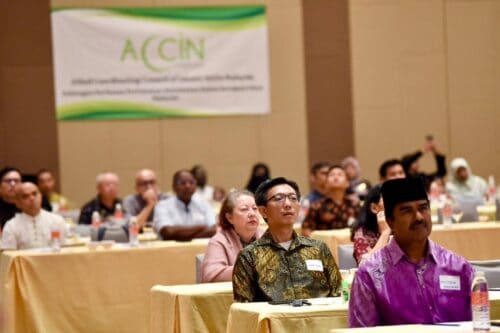
This year’s conference carried the theme “Embracing Multicultural and Multi-Religious Unity Towards Peace and Harmony in a Troubled World: Possible Solutions.”
It brought together international and local leaders, including Qatar’s Ambassador to Malaysia His Excellency Salah Mohammed Al-Sorour, DICID Board of Directors chairman Prof Ibrahim Saleh Al-Naimi, Foreign Minister on Peace Building and Countering Islamophobia special representative Dr Abdul Razak Ahmad, Roman Catholic Bishop of Penang Cardinal Datuk Seri Sebastian Francis, and ACCIN chief executive officer Mohd Jamaludin Shamsudin.
In his speech, Chow outlined four priorities for sustaining peace: ensuring justice and protection for the marginalised; fostering continuous interfaith dialogue; safeguarding mediators and peacebuilding processes; and empowering youth through education.
He cited the recent airstrike in Doha on Sept 9, which killed a Qatari security officer during a ceasefire meeting, as an example of how violence undermines trust and destroys the foundations of dialogue.
“Peace is not an abstract dream, but it is a daily practice rooted in justice, compassion, and shared responsibility,” Chow said, emphasising the importance of platforms like IIPC 2025.
He also highlighted Penang’s role in strengthening interfaith understanding through the Penang Harmony Corporation (HARMONICO), while noting that the state should package itself as a destination for peace-related conferences.
“We do witness many such gatherings throughout the year. With the networks of NGOs here, we can encourage more initiatives that promote peace, human rights, and awareness,” he said.
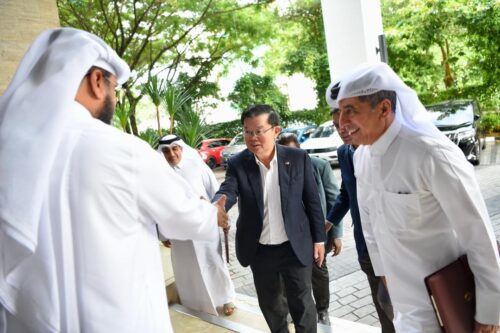
Prof Ibrahim commended the conference, adding that DICID had immediately agreed to partner with ACCIN to co-organise the event, recognising the urgency of such platforms.
“The world is facing many challenges, with hate speech growing rapidly. We must work hand in hand with global partners to counter this and build a better future for the next generation,” he said.
Mohd Jamaludin expressed hopes that the message of interfaith harmony would reach ordinary people, noting that Sarawak church representatives were also present to explore the prospect of hosting a future edition of the conference in Kuching.
“These conferences must be supported by ongoing efforts in schools, universities, and communities. Programmes such as interfaith workshops, youth training, and site visits to different places of worship are vital to build mutual understanding,” he said.
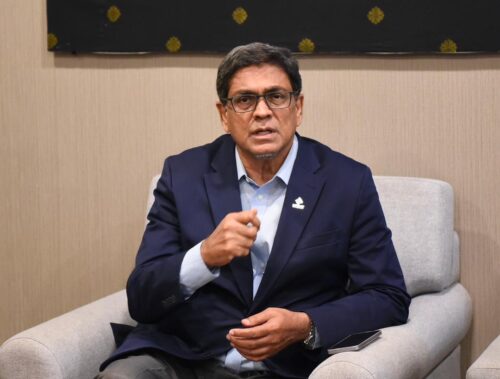
Also present during the event was Pulau Tikus assemblyman Joshua Woo.


